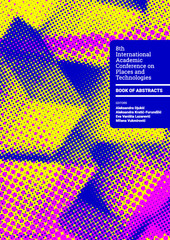Приказ основних података о документу
Going Green-Less: A Morphological and Functional Study of Decreasing Green Public Spaces in Novi Beograd, Serbia
| dc.creator | Filipović, Ivan | |
| dc.creator | Stojanović, Kosta | |
| dc.date.accessioned | 2024-03-18T09:58:32Z | |
| dc.date.available | 2024-03-18T09:58:32Z | |
| dc.date.issued | 2023 | |
| dc.identifier.isbn | 978-86-7924-338-6 | |
| dc.identifier.uri | https://raf.arh.bg.ac.rs/handle/123456789/2046 | |
| dc.description.abstract | The approach to urban planning and development of public spaces supporting healthy lifestyles and well-being within the wider context of green infrastructure in Belgrade, Serbia, has undergone an observable and measurable shift. Various factors have contributed to a decline in the planning and implementation of these spaces, particularly for newly designed residential developments, with the most significant prominence observed since the beginning of the 21st century. This paper seeks to examine the spatial and non-spatial factors that contributed to the decrease in the previously established urban planning approach for green public spaces. Changes in laws and regulations, transformation in lifestyle perspectives, and the impact of globalization can all be attributed to the resulting spatial impacts. This paper will utilize five case studies, focusing on residential blocks within the Novi Beograd municipality (Blocks 19a, Block 30, Block A, Belville and West 65), to illustrate the shift in urban planning perspective and its outcomes. Through a comparative study of these cases, a clear change in approach when conceiving and implementing green public spaces is demonstrated. In addition to providing a comprehensive overview of the resulting spatial impacts stemming from the examined changes in perspective, this research will present a set of applicable guidelines for future developments, encompassing both theoretical and practical aspects. As urban planning practices for new developments increasingly disregard the requirements of public spaces that support healthy lifestyles, notably in human interaction and well-being, this topic remains continuously relevant. | sr |
| dc.language.iso | en | sr |
| dc.publisher | Belgrade : University of Belgrade, Faculty of Architecture | sr |
| dc.rights | openAccess | sr |
| dc.source | Keeping up with technologies to imagine and build together sustainable. inclusive, and beautiful cities : book of abstracts / 8th International Academic Conference on Places and Technologies, Belgrade | sr |
| dc.subject | public space | sr |
| dc.subject | green infrastructure | sr |
| dc.subject | urban planning | sr |
| dc.subject | Novi Beograd | sr |
| dc.subject | well-being | sr |
| dc.title | Going Green-Less: A Morphological and Functional Study of Decreasing Green Public Spaces in Novi Beograd, Serbia | sr |
| dc.type | conferenceObject | sr |
| dc.rights.license | ARR | sr |
| dcterms.abstract | Филиповић, Иван; Стојановић, Коста; | |
| dc.citation.spage | 27 | |
| dc.citation.epage | 27 | |
| dc.identifier.fulltext | http://raf.arh.bg.ac.rs/bitstream/id/7143/PT2023_Filipovic_Stojanovic_ABSTRACT.pdf | |
| dc.identifier.rcub | https://hdl.handle.net/21.15107/rcub_raf_2046 | |
| dc.type.version | publishedVersion | sr |

